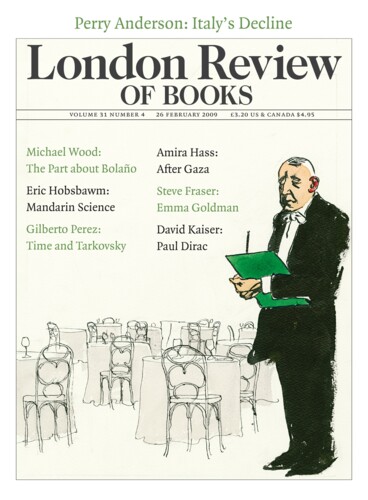Diary: Aliens
David Kaiser, 8 July 2010
My mother rarely calls to talk about my research. In April, however, she rang to ask: ‘Do you agree with Stephen Hawking?’ That’s usually an easy question to field. On topics ranging from the behaviour of black holes to the structure of the early universe, a safe answer is yes. But that wasn’t what my mother wanted to know. She wanted to know whether I agreed with the recently retired Lucasian Professor of Mathematics that trying to contact aliens was a bad idea. Any extraterrestrial civilisation that could receive our communiqués and act on them, Hawking warned, might show up on our doorstep, and wouldn’t necessarily be friendly. ‘Such advanced aliens,’ Hawking said, might be ‘looking to conquer and colonise whatever planets they can reach.’ In no time at all, the word spread from Hawking’s voice synthesiser to the world’s blogosphere. Soon even my mother was calling.




